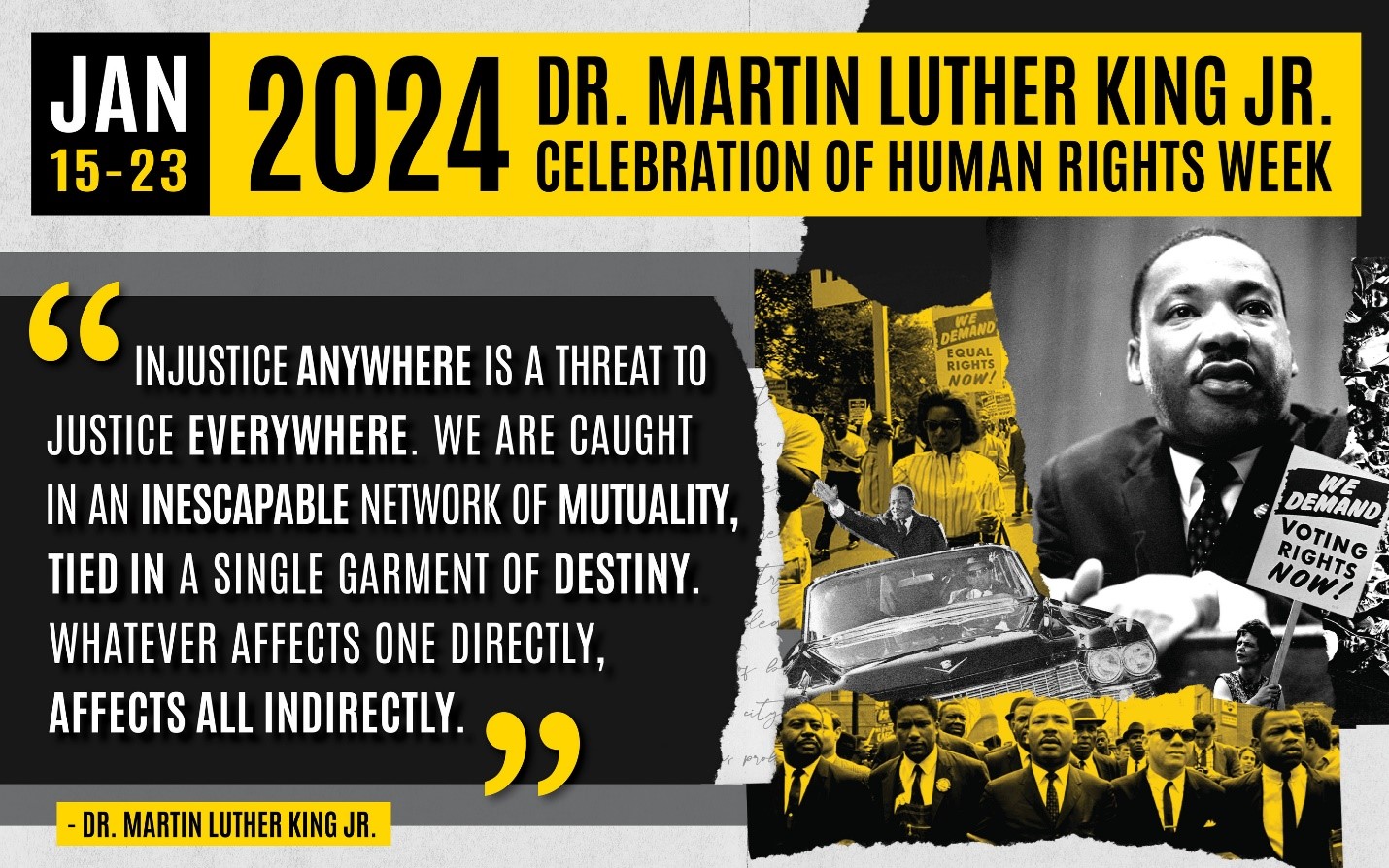
Dr. Martin Luther King Jr. (MLK) was born in Atlanta on Jan. 15, 1929, to a family of pastors, a calling he would make his lifelong vocation, as pastor of a Montgomery Alabama church. Flickers of his talent could be seen from a young age. He entered college at the age of 15, and at 26, he received his doctorate in systematic theology from Boston University [1, 2]. Having attended segregated schools as a child, MLK was far too familiar with the racial discrimination that plagued America. He took a proactive approach and showed his dissent by participating in boycotts of segregated buses [1]. Wherever there was inequality or injustice, MLK took a stand against it. Between 1957 and 1968, MLK traversed the country, speaking out against injustice, authoring 5 books and countless articles decrying segregation.
What set MLK apart from many of his anti-segregationist contemporaries, however, was that his methods were always peaceful. It was believed by many, that the violence, which was meted out to them, should be reciprocated. In fact, MLK himself was no stranger to being on the receiving end of violence. He was arrested 29 times on many fabricated charges, his home was bombed [1], and he even survived an assassination attempt in 1958 [2].
However, MLK was steadfast in his message of inclusion, calling for all races to unite, and fight against inequality. In short, inequality was not just a problem of the south, it was a problem for all of America. Perhaps his defining moment was on Aug. 28, 1963, when he led 250,000 to peacefully march on Washington, D.C. There he delivered his iconic, “l Have a Dream” speech [1]. Listen to it in its entirety [3]. This message, amidst the turmoil of the era, acted as a salve for the nation and captivated the hearts and minds of not only his supporters, but his enemies, and the complacent. So profound an orator, was he.
During his lifetime, MLK received many national and international accolades for his work. He was named Time magazine’s Man of the Year in 1963 [1]. He then became the youngest recipient of the Nobel Peace Prize in 1964, for his ‘dynamic leadership of the Civil Rights movement and steadfast commitment to achieving racial justice through nonviolent action.’ [4]
Nevertheless, he would ultimately fall victim to the violence he so abhorred. On April 4, 1968, on the balcony of Memphis’ Lorraine motel, a shot rang out. Dr. King was slain [1]. The country and world mourned. However, the gunman’s act did not achieve the intended goal, for though he killed the messenger, the message would never die. Today MLK is revered by people of all colors and nationalities, not only as a civil rights leader, put as a proponent for change, who continues to inspire countless people to speak out against injustice.
Today, we remember this luminary, through the celebration of the MLK holiday, observed on the 3rd Monday of every January. The federal holiday was first established on Nov. 2, 1983, by President Ronald Reagan. On Aug. 23, 1994, the King Holiday and Service Act was signed into law by President Bill Clinton. This day was meant to honor Dr. King’s works, by promoting service and volunteering within one’s community [5, 6].
This year, join the University of Iowa as we celebrate MLK’s legacy during MLK and human rights week (Jan 15-23). There will be various events held, such as educational lectures, volunteering opportunities and a freedom march. You can learn more or get involved using the link: https://mlk.uiowa.edu/ [7].
References:
-
https://www.nobelprize.org/prizes/peace/1964/king/biographical/
-
https://www.history.com/news/10-things-you-may-not-know-about-martin-luther-king-jr
-
https://www.npr.org/2010/01/18/122701268/i-have-a-dream-speech-in-its-entirety
-
https://crdl.usg.edu/events/mlk_nobel_prize
-
https://nmaahc.si.edu/explore/stories/15-year-battle-martin-luther-king-jr-day
-
https://www.doi.gov/pmb/eeo/mlk-day-service
-
https://mlk.uiowa.edu/